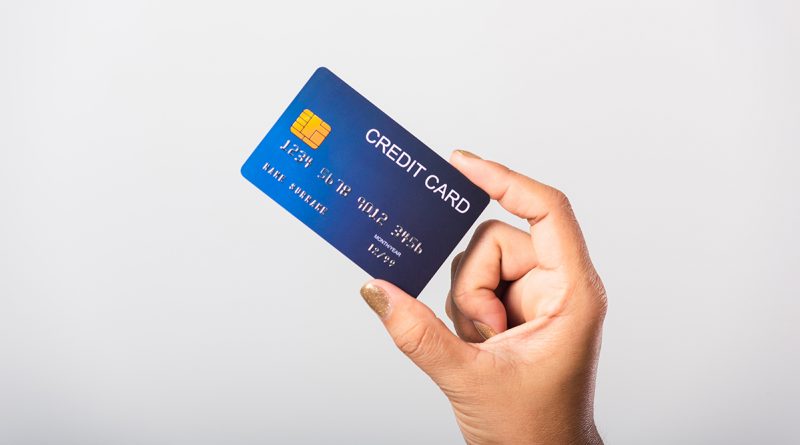5 Tips For Getting Your First Credit Card
The opening of one’s first credit card is typically seen as the pinnacle of adulthood. However, it is important to remember that using a credit card comes with a lot of responsibility.
You must understand how credit cards work and discover wise usage strategies as well. So, if you’re considering looking at some starter credit cards, you need to know some tips and points to know before you actually apply for your credit card.
Things to consider while getting your first credit card
Why do you need a credit card or how will it benefit you? Do you wish to improve your credit, buy something expensive, or get rewards? Or how those rewards will help you? All these questions make it even more overwhelming to get your first credit card. So, it’s essential to know what you’re getting into and what things you should consider.
#1. Your financial situation and spending patterns
It’s not possible for everyone to get a credit card. First, banks or businesses will check your financial condition. Then, they’ll decide whether you’re able to pay back when you apply for a credit card. So, getting a credit card might not be a good option if you are paying off another loan. Besides, it also doesn’t matter if it’s a student loan or a mortgage, you must prove your ability to pay it back. Moreover, your monthly expenses will increase if you have a credit card and it can strain your resources.
On the other hand, there are chances that you get a credit card even if you have other loans. However, that depends on the bank’s or other financial institution’s decision that you are still able to make credit card payments despite having loans. So, your spending habits are another thing you should consider.
Even if you qualify for a credit card, you should still consider how you’re going to use it. Will you only use it in times of need? Or are you going to use it for regular expenses? This way, depending on the annual fees or interest rates of the cards, your spending patterns will help you decide which one to get.
#2. Think about the fees and rates for credit cards
Any financial organization needs to make certain conditions publicly available according to law. For example, interest rates and annual fees. So, before you apply for a credit card, you should be aware of these rates and fees. Some of the fees to take into account are:
- Annual Fees – As a cardholder, you’ll need to pay this every year.
- Annual percentage rates – This is the interest that you will pay on balances carried over each month. There are different rates of different balances and transfers.
- Purchasing Fees – The transaction fees charged when you make purchases in or out of the country.
- Late Fees – These are charged when you pay credit balances beyond their due dates.
Some card issuers waive the first year’s annual fees when you apply for your first credit card with them. Other organizations, on the other hand, don’t impose any extra fees or charges when you buy goods or services from particular retailers. However, you must take into account the number of fees that a credit card offers. And It is important because it will be another factor used to determine your ability to pay the debt.
#3. Think about the kind of card you need
Today, there are different kinds of credit cards. Depending on how and where you intend to use them, there’s a wide range. As the terms are simpler to comprehend, basic or typical credit cards are a great option for novices. However, it is significant to remember that typical credit cards don’t provide incentives or cash back.
On the other hand, college students without a credit history can apply for student credit cards. It is not overly sophisticated like regular ones. But, it offers some benefits like rewards for little purchases and cheap interest rates for balance transfers. Depending on your spending patterns and intended uses, there are several card types that offer distinct benefits.
The most popular credit cards in circulation today are reward cards. With these, you can make purchases and get rewards or points that you can exchange for credit.
#4. Consider your credit limit
The maximum amount that a financial institution will put on your credit card is known as the credit limit. This is the largest sum you may technically borrow from them. The credit limit will be determined by the bank or service provider based on your ability to pay back amounts and fees. However, if you’re acquiring a credit card for the first time, you should think about a supplier who will provide you with a credit limit appropriate for your needs. Remember that it shouldn’t be too high or too low.
#5. Think about extra benefits and rewards offered
Reward credit cards are widely used today. One of the most popular reward credit cards in circulation today is a cashback card. Based on how much you spent with the card, the credit card company will give you a percentage in cash back. Also, travel cards are a great option for you if you intend to use the card to buy airline tickets. You can earn miles that you can use to book flights when you use your credit card to purchase some airline tickets. Moreover, travel cards often come with extra perks. For example, comprehensive travel insurance, hotel, and transportation savings. You can even get free access to VIP airport lounges.
Conclusion
It’s a big event to get your first credit card. For this, your capacity to pay off the bills is the most crucial factor to take into account. You could find yourself in serious financial problems if you are not careful enough to pay your credit. So, always remember to read the terms, costs, and penalties before making a purchase with your credit card. Moreover, consider cards that provide extra benefits and rewards as well. This way, you’ll be able to maximize your shopping opportunities and get a better experience of using credit cards.




